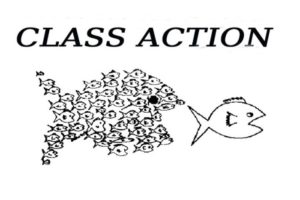A recent federal court ruling opens up the possibility for veterans to bring class action lawsuits against the U.S. Department of Veterans’ Affairs. This means that, when certain conditions are met, veterans need not go it alone when contesting the denial (or handling) of their disability benefits claims.
“This is a watershed decision, and its importance should not be diminished merely because the court declined to certify this proposed class,” Chief Judge Robert Davis wrote in the opinion. “On the contrary, the court’s decision will shape our jurisprudence for years to come and, I hope, bring about positive change for our nation’s veterans.”
In Monk, Jr., Et. Al., v. Robert L. Wilkie, the Court of Appeals for Veterans Claims (CAVC) reviewed a motion for class certification made on behalf of veterans with medical and financial hardship. (No. 15-1280). The petition alleged that the VA’s delay in adjudicating disability compensation benefits constituted a violation of the right to due process under the Fifth Amendment, and sought an order from the CAVC directing the VA to decide appeals within one year after a Notice of Disagreement is filed.
In order to certify the class under the applicable Federal Rule of Civil Procedure (Rule 23), the court needed to find that four requirements were met:
- Commonality – That there were questions of law or fact common to the class.
- Adequacy – That the representative parties would fairly and adequately protect the interests of the class.
- Numerosity – That the class was so numerous that joinder of all members was impracticable.
- Typicality – That the claims or defenses of the representative parties were typical of the claims or defenses of the class.
(Note that these four requirements spell out “CAN’T.” If each isn’t met, you can’t certify).
In this case, the CAVC rejected the petitioners’ argument that commonality was satisfied because all the class members have suffered the same injury – delay – due to the VA’s broken appeals system. The CAVC examined whether the delay in all the appeals was “unreasonable,” finding that certain factors stood in the way of finding such unreasonableness across the board (for example, some veterans experienced delays due to the VA’s duty to provide hearings, which slows the process). There was not a specific practice or policy resulting in delay set forth by the petitioners, which prevented them from meeting the commonality requirement. Accordingly, the CAVC denied the motion for certification (and did not proceed to address the other three requirements).
This case, while disappointing for the petitioners, is extremely important for veteran claimants going forward. It not only raises the possibility of class certification, but it provides a framework for those who may be contemplating pursuing similar relief. As we know, thousands of veterans are suffering the same issues across the board, and this case raises the possibility of them seeking relief as a united front.
And there’s power in numbers.
*Did you find this article informative? If so, sign up for Sarah Schauerte’s legal blog on veteran issues at: https://legalmeetspractical.com.
